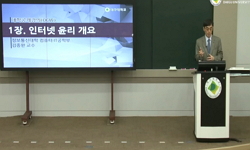Objectives:The aims of this study were to estimate the prevalence of the internet addiction in Korean middle and high school students who are known to be suffered from severe academic loading compared to foreign students, and to compare the time spe...
http://chineseinput.net/에서 pinyin(병음)방식으로 중국어를 변환할 수 있습니다.
변환된 중국어를 복사하여 사용하시면 됩니다.
- 中文 을 입력하시려면 zhongwen을 입력하시고 space를누르시면됩니다.
- 北京 을 입력하시려면 beijing을 입력하시고 space를 누르시면 됩니다.

중·고교 학생들의 인터넷 사용과 자아 존중감, 감정 표현 불능증, 가족내 결속력, 인격성향과의 연관성 = Relationship between Internet Usage, Self-Esteem, Alexithymia, Familial Cohesion & Adaptability, Eysenk Type A Questionnaire in Middle and High School Students
한글로보기https://www.riss.kr/link?id=A103523758
- 저자
- 발행기관
- 학술지명
- 권호사항
-
발행연도
2002
-
작성언어
-
- 주제어
-
KDC
512
-
등재정보
KCI등재
-
자료형태
학술저널
-
수록면
107-113(7쪽)
- 제공처
-
0
상세조회 -
0
다운로드
부가정보
다국어 초록 (Multilingual Abstract)
Methods:Subjects were middle and high school boy students in Gimpo and Kumi city (N=365). Self-rating questionnaire included time spent on internet, internet using patterns, withdrawal symptoms, trial to discontinue, failure to discontinue, interference in academy, and continuation although troublesome. Young internet addiction scale, Korean version of SelfEsteem Scale, 20-Item Alexithymia Scale, Family Adaptability and Cohesion Evaluation Scale, Eysenk Type A Questionnaire were also self rated. Results:1) In this study, prevalence of internet addiction is 5.2%. 2) Addicted group and Overused group spent more time on internet, especially for games. 3) Addicted group experienced more withdrawal symptoms, and had higher insight for internet addiction but continued internet although troublesome. 4) Korean version of Self-Esteem Scale, Family Adaptability and Cohesion Evaluation Scale, and tension, ambition, activity subscale of Eysenk Type A Questionnaire showed no differences between addicted, overused, and nonaddicted groups. 5) Addicted group showed significantly higher scores alexithymia and intolerablity scales. Conclusions:This study suggest that alexithymia and intolerability can worse internet addiction. Although addicted group experienced more withdrawal symptom and had higher insight for internet addiction, they continued internet in spite of much troubles.
Objectives:The aims of this study were to estimate the prevalence of the internet addiction in Korean middle and high school students who are known to be suffered from severe academic loading compared to foreign students, and to compare the time spent on internet, internet using patterns, trial to discontinue internet, withdrawal symptoms, Self-Esteem, Alexithymia, Familial Cohesion and Adaptability, Eysenk Type A Questionnaire between addicted, overused, and non-addicted groups.
Methods:Subjects were middle and high school boy students in Gimpo and Kumi city (N=365). Self-rating questionnaire included time spent on internet, internet using patterns, withdrawal symptoms, trial to discontinue, failure to discontinue, interference in academy, and continuation although troublesome. Young internet addiction scale, Korean version of SelfEsteem Scale, 20-Item Alexithymia Scale, Family Adaptability and Cohesion Evaluation Scale, Eysenk Type A Questionnaire were also self rated. Results:1) In this study, prevalence of internet addiction is 5.2%. 2) Addicted group and Overused group spent more time on internet, especially for games. 3) Addicted group experienced more withdrawal symptoms, and had higher insight for internet addiction but continued internet although troublesome. 4) Korean version of Self-Esteem Scale, Family Adaptability and Cohesion Evaluation Scale, and tension, ambition, activity subscale of Eysenk Type A Questionnaire showed no differences between addicted, overused, and nonaddicted groups. 5) Addicted group showed significantly higher scores alexithymia and intolerablity scales. Conclusions:This study suggest that alexithymia and intolerability can worse internet addiction. Although addicted group experienced more withdrawal symptom and had higher insight for internet addiction, they continued internet in spite of much troubles.
동일학술지(권/호) 다른 논문
-
- 한국중독정신의학회
- 이태경(Tae Kyung Lee):한진희(Jin Hee Han)
- 2002
- KCI등재
-
알코올 의존 환자에서의 역기능적인 핵심믿음에 대한 연구
- 한국중독정신의학회
- 이덕기(Duk-Ki Lee)
- 2002
- KCI등재
-
- 한국중독정신의학회
- 민성호(Seongho Min):신정호(Jongho Shin):박새한(Sae-Han Park)
- 2002
- KCI등재
-
- 한국중독정신의학회
- 백봉석(Bong Seok Baek)
- 2002
- KCI등재




 스콜라
스콜라



